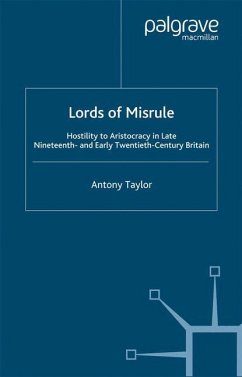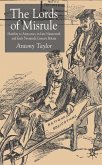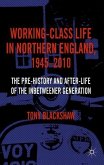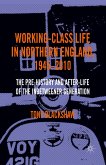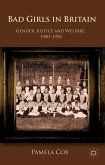Flamboyant, cultured and refined, aristocracy is often seen as a national treasure. Lords of Misrule takes a different view and considers the role of an aristocracy behaving badly. This is a book about the political, social and moral failings of aristocracy and the ways in which they have featured in political rhetoric. Drawing on the views of critics of aristocracy, it explores the dark side of power without responsibility. Less 'patrician paragons' than dissolute and debauched debtors, the aristocrats featured here undermined, rather than augmented, the fabric of national life. For the first time, Lords of Misrule recaptures the views of those radicals and reformers who were prepared to contemplate a Britain without aristocrats.
'Without question, the British aristocracy had staying power. But as Antony Taylor demonstrates so well, the aristocracy's position did not go unchallenged. In Lords of Misrule , he offers a stunning reminder of the strong anti-aristocratic currents that ran through late nineteenth and early twentieth-century British popular politics. Instead of the nostalgia so often associated with aristocratic culture, Taylor reasserts the importance of the radical critique of aristocratic privilege, power, and moral authority. His book is an important addition to the political and social history of modern Britain.' - Professor James A. Epstein, Vanderbilt University

